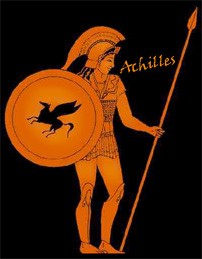
The origin of the word anesthesia. Mary F. Kavanagh. Chairman's address, Anesthesiology Section, California Medical Association, at its Fifty-Seventh Annual Session, April 30 to May 3, 1928. Cal West Med. 1928 July; 29(1):10–12.
The word anesthesia is of Greek derivation and signifies loss of sensation, especially of tactile sensibility. This was the definition of a word of very little use or importance. The present use of. the word "anesthesia" to signify induced insensibility to pain during surgical operations dates from September 30, 1846.
Ancient, medieval and modern history furnish numerous examples of the use of drugs or other media, which by some means of dulling consciousness bring about partial or complete unconsciousness. Homer in his "Odyssey" caused Helen of Troy to put some drug into wine to "lull all pain and anger, and bring forgetfulness of every sorrow." Some believe it to have been mandragora, others maintain it was opium.
Herodotus, a Greek historian, five hundred years after Homer, tells of a custom among the Scythians of inhaling the fumes of a variety of hemp, which produced an exalted mental state, followed by sleep. The chronicles of ancient Rome record the sayings of the Priestess Pythia of the famous Delphian Oracle. Her ravings were attributed to the inhalations of carbon dioxid which is supposed to have been generated by a natural phenomenon in a cavern of the temple of Apollo, and of which there is an example today in the Grotto del Cane near Naples.
Pliny, Roman historian, described the use of mandragora and described the custom of giving it to relieve the sufferings of victims of crucifixion. Galen, the Greek physician, often called the father of medicine, mentions in his writings the power of mandragora to paralyze sensation and motion.
Hoa-tho, a Chinese surgeon, in the third century, employed a preparation of hemp to stupefy his patients. Hemp was also used by the Egyptians under the name of hashish. The soporific effects of mandrake are alluded to by Shakespeare, who made frequent mention of anesthetizing draughts, the composition of which was not indicated.
[…]
Archivo: Recuperar el archivo complete. [Clic aquí]

